Penguin supports copyright. Copyright fuels creativity, encourages diverse voices, promotes free speech, and creates a vibrant culture. Thank you for buying an authorized edition of this book and for complying with copyright laws by not reproducing, scanning, or distributing any part of it in any form without permission. You are supporting writers and allowing Penguin to continue to publish books for every reader.
NFL and the NFL shield design are registered trademarks of the National Football League.
Introduction
FOOTBALL, IN SPITE OF ITSELF
February 4, 2018
It fell to the Brazilian First Lady to settle the punch-drunk scene. She strutted in with the self-assurance of someone who knew her aura preceded her, even in defeat. Great game, she said, not aware of the players name (he was out of his jersey, a lineman by the size of him). He knew hers. Gisele Bndchen was working the big game after chaos in a back hallway of U.S. Bank Stadium in Minneapolis, seeking out Philadelphia Eagles to stun with her classy attaboys. I watched them flinchUh, thanks, thanks very much. Super Bowl 52 had just ended in a hail of confetti and an unanswered Hail Mary from her husband, New England quarterback Tom Brady.
He was already being criticized across the Hot Take Village for not sticking around the field long enough to congratulate his Philly counterpart, Nick Foles. So his supermodel wife, in Bradys stead, was taking on his celebrity grace duties. She moved from Eagle to sweaty Eagle, representing Brady both as a sportsmanship ambassador andin a sly wayas a killer consolation trophy to brandish over the new champs. She was the last power play in his playbook. And the Eagles had no answer for Gisele. She caught another one leaving the locker room. Good game, she said, startling him. Uh, your guys amazing, the Eagle muttered back.
Brady himself was behind a curtain dealing with the media. Losing sucks, he confirmed. But you show up and you try to win, and sometimes you lose and thats the way it goes. The game had finished only fifteen minutes earlier, he reminded everyone.
Brady is an empire, like the league he plays in. Empires fall eventually, but one of their best moves is to sell the illusion of timelessness. Normal limits dont apply. How many more big games did Brady have left? He kept getting asked this question, in so many words. I expect to be back but well see, he said.
Four years earlier, in the Almightys den, Brady and I had discussed the How much longer question too: issues of age, mortality, and the actuarial tables that he knew were running against him in the NFL, or Not for Long as players call a league where the average career lasts 3.3 years. Barely anyone still plays in these big gamesmuch less excelspast forty, Bradys present age.
I wondered why he kept doing this, and whether he worried about confronting a void after he finished. When I dont have the purpose of football, I know thats going to be a really hard thing for me, Brady told me then. There was melancholy to him when he said this, one Ive sensed in Brady sometimes, even in his pinnacle momentsof which this batshit shootout in Minnesota was not one. He headed off his temporary stage and met up with his football goddess in a hallway. They shared a group hug with the kids, Instagrammed for proof.
Bradys Patriot teammate Rob Gronkowski walked by en route to another makeshift podium. Gronk appeared dazed, more so than his usual stupor. He also had processing to do. Only twenty-eight, the tight end had filled up an impressive share of stat sheets and medical charts over his eight seasons. How much more? He got that question, too. I am definitely going to look at my future, for sure, Gronkowski said, maybe more candidly than he expected. I am going to sit down the next couple of weeks and see where Im at.
No one could blame him if he quit. His working life had been a pained procession of broken bones, concussions, surgeries, and rehabs. Even when health allowed, he performed under a doleful tyrant of a coach for a below-market contract in what sure looked to be a cheerless work environment. He had plenty of money, two Super Bowl rings, and Hall of Fame credentials. He could move into any number of Gronk-suitable existencesWWE, action movies, or some reality show.
But Gronkowski was also born to play this game, as much as any mortal body can be. He was Peak Football, both in size (six foot six inches, 260) and temperament (beast). He could still dominate if he wanted to ormore to the pointhe should still dominate because I really wanted him to still dominate. Yes, I want Gronk to keep playing because he helps my team win. Thats my selfish disclaimer: the Patriots are a disease I contracted early, growing up in Massachusetts. I still root for them, and am still trying to grow up (no longer in Massachusetts). The team has been great and interesting and despised for a long time. They make me feel like a winner, superior to my friends who root for other teams, and thats important, God knows.
Allegiance to the Pats can be tricky. We lead the league in crosses to bear. Our owner can be a whiny star-fucker and sniveling in victory. Everyone who follows pro football outside of New England is sick of us (excluding Donald Trump, Jon Bon Jovi, and maybe a few others). Big portions of the Patriots fan base have become entitled assholes. And yes, I might be one of them. Yet I am loyal to the Pats pretty much unconditionally, give or take the odd cheating rap or occasional Aaron Hernandez.
If anything, my infatuation with pro football has only deepened, even as Ive supposedly become instilled with more mature priorities and a fuller knowledge of how the game operates and the kinds of people who operate it. It started in second grade, when my best friend, Josh, and I wrote a letter to our favorite player, Jim Plunkett, and invited the young Patriots quarterback to Joshs house for dinner (he never responded). This attachment has endured through the years and withstood a steady helmet-slapping of cognitive dissonance over whether I should know better than to keep following this sport as closely as I do. Scary research on posthumous football brains has been as impossible to miss as the testimonials from still-living retirees about the sad state of their bodies. (To wit: My life sucks, Jim Plunkett, then sixty-nine, told the San Jose Mercury News in 2017. Everything hurts.)
If you love football, you get good at blind spots and blind sides. NFL Network and NFL Films captivate with round-the-clock fairy tales: It starts with a whistle and ends with a gun! A football life can be irresistibly Hollywood and parable-readylike the up-from-dirt saga of lineman Michael Oher, the protagonist in Michael Lewiss

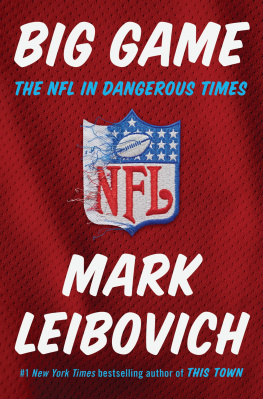
![National Football League. - Men of Sunday: [how faith guides the players, coaches, and wives of the NFL]](/uploads/posts/book/165636/thumbs/national-football-league-men-of-sunday-how.jpg)

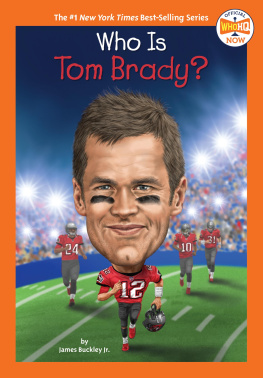
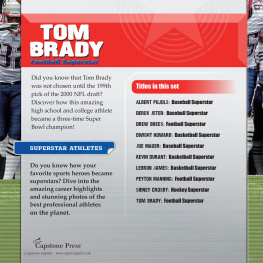
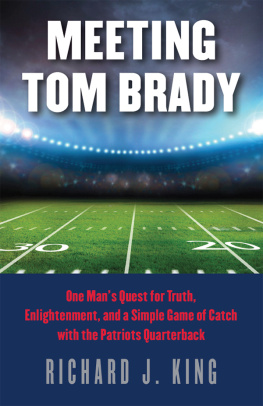
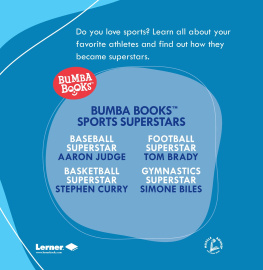
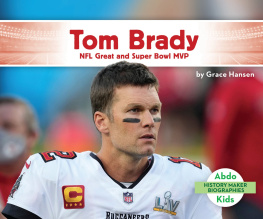
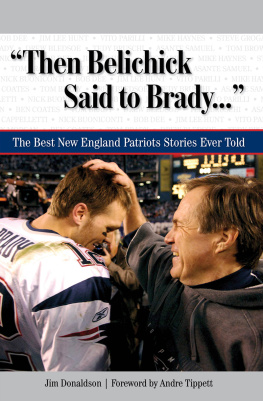
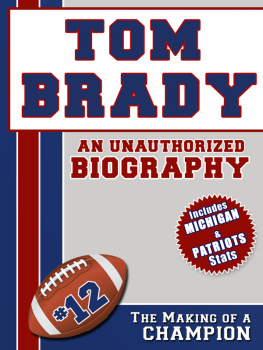
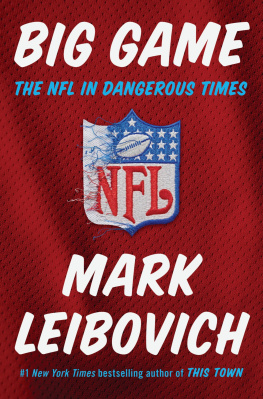
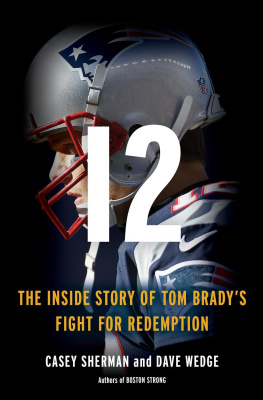

 Also by Mark Leibovich
Also by Mark Leibovich